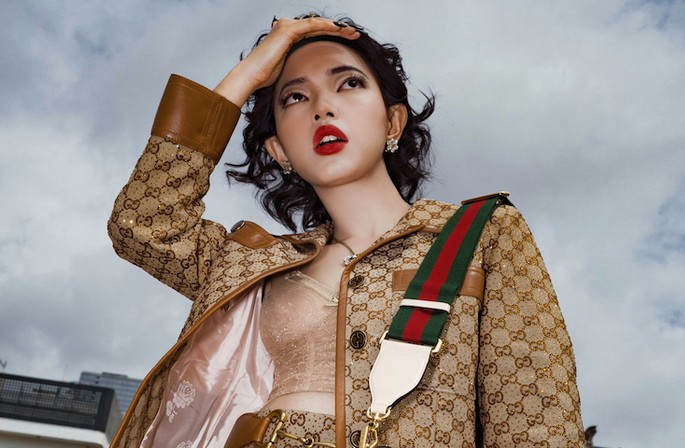HANOI – Vietnam’s rapidly expanding consumer class increasingly turns to luxury goods, signaling a significant shift in the nation’s economic landscape. As the country’s economy grows fastest in Southeast Asia, the rise of an affluent middle class is reshaping consumer habits, with many now embracing high-end products such as luxury cars, premium smartphones, and designer cosmetics. This newfound wealth is not only transforming Vietnam’s domestic markets but also highlighting the growing divide between the country’s rich and poor.
Over the past decade, Vietnam’s per capita GDP has surged, catching up with regional economic peers. While much of this prosperity is fueled by the country’s booming manufacturing and export sectors, a new wave of consumption has emerged as a key driver of growth. According to recent reports, car ownership in Vietnam has tripled in the last 13 years, with many urban consumers upgrading to luxury vehicles and electric cars. One of the most notable players in this transformation is VinFast, Vietnam’s homegrown electric vehicle manufacturer, which has become a symbol of the nation’s ambitions to lead in clean technology and modern consumerism.
Economic Surge and the Luxury Boom
The luxury consumption trend can be largely attributed to Vietnam’s accelerating economic development. Foreign direct investment, particularly from major international markets such as Japan, South Korea, and the United States, has created a wealth boom, particularly among the upper-middle class. As Vietnam’s cities like Hanoi, Ho Chi Minh City, and Da Nang rapidly modernize, a growing number of urbanites are gaining access to a wide range of luxury goods once considered out of reach.
The middle class in Vietnam has doubled in the last decade, with rising incomes allowing many to purchase homes, high-end smartphones, and other products previously reserved for the elite. Additionally, the burgeoning tourism sector and the rise of local entrepreneurs in tech and retail have further fueled demand for luxury items. Western brands are capitalizing on this shift, with international luxury labels making their mark in major Vietnamese cities, offering a range of products from high-end automobiles to exclusive fashion and beauty brands.
VinFast: The Face of Vietnam’s Luxury Future
The rise of VinFast, a Vietnamese electric vehicle company, encapsulates this new era of wealth and consumer aspiration. Founded by Vingroup, the largest private conglomerate in Vietnam, VinFast has quickly become a domestic powerhouse, with its electric cars gaining popularity both at home and abroad. The brand has been heralded as a testament to Vietnam’s clean tech ambitions, with its success symbolizing the country’s increasing capacity to produce high-end products that compete on the global stage.
In 2023, VinFast made its entry on the U.S. stock exchange, drawing significant attention to its potential as a global electric vehicle player. The popularity of VinFast among Vietnam’s rising middle class reflects a broader shift toward modern, eco-conscious living, with consumers increasingly aligning their purchasing habits with global sustainability trends.
A Growing Divide: Rich vs Poor
However, the nation’s burgeoning consumerism has also drawn attention to the significant income disparity between Vietnam’s rich and poor. While a growing number of upper-middle-class Vietnamese are now enjoying a more luxurious lifestyle, the country’s rural areas and lower-income urban populations are not experiencing the same benefits. Income inequality remains a pressing issue, with many still struggling to access the opportunities afforded by the country’s economic boom.
The Communist Party, which has led Vietnam since reunification in 1975, is grappling with the implications of this growing wealth gap. On the one hand, the government supports economic growth, seeing it as essential for maintaining national stability and fostering a new generation of global consumers. However, the increasing visibility of wealth, especially in urban centers, has brought concerns about social inequality to the forefront.
President Vo Van Thuong, who took office in 2024, has emphasized the importance of inclusive growth, acknowledging the challenges posed by the growing disparity between Vietnam’s rich and poor. “We are committed to ensuring that economic growth benefits all of our citizens, not just those in major cities,” he said during a recent speech. The government has announced several initiatives aimed at improving infrastructure, education, and healthcare in rural areas to balance this development.
Luxury Consumption as a Sign of a New Vietnam
The shift toward luxury consumption in Vietnam signals a broader transformation of the country’s identity. What was once a nation of modest means and economic hardship is now rapidly evolving into a consumer society where wealth is being redefined. However, this transformation also poses significant challenges. The Communist Party, which has maintained tight control over the country’s political and economic systems, must now navigate the complexities of rapid urbanization, income inequality, and the social tensions that can arise from a sharply divided society. (zai) Photos: VNEXPRESS


